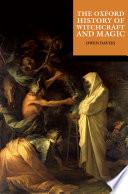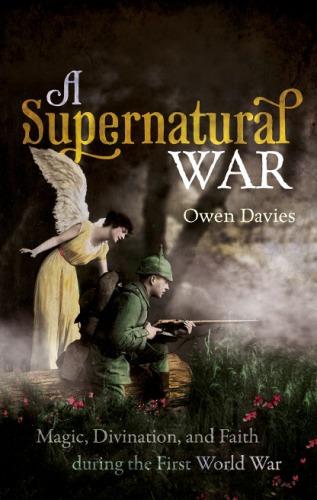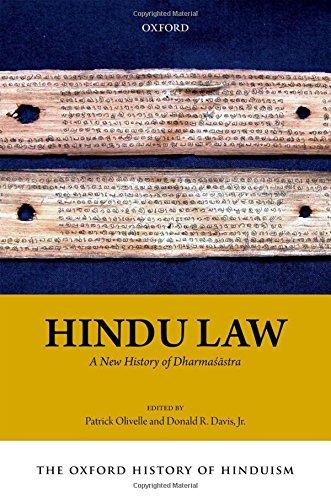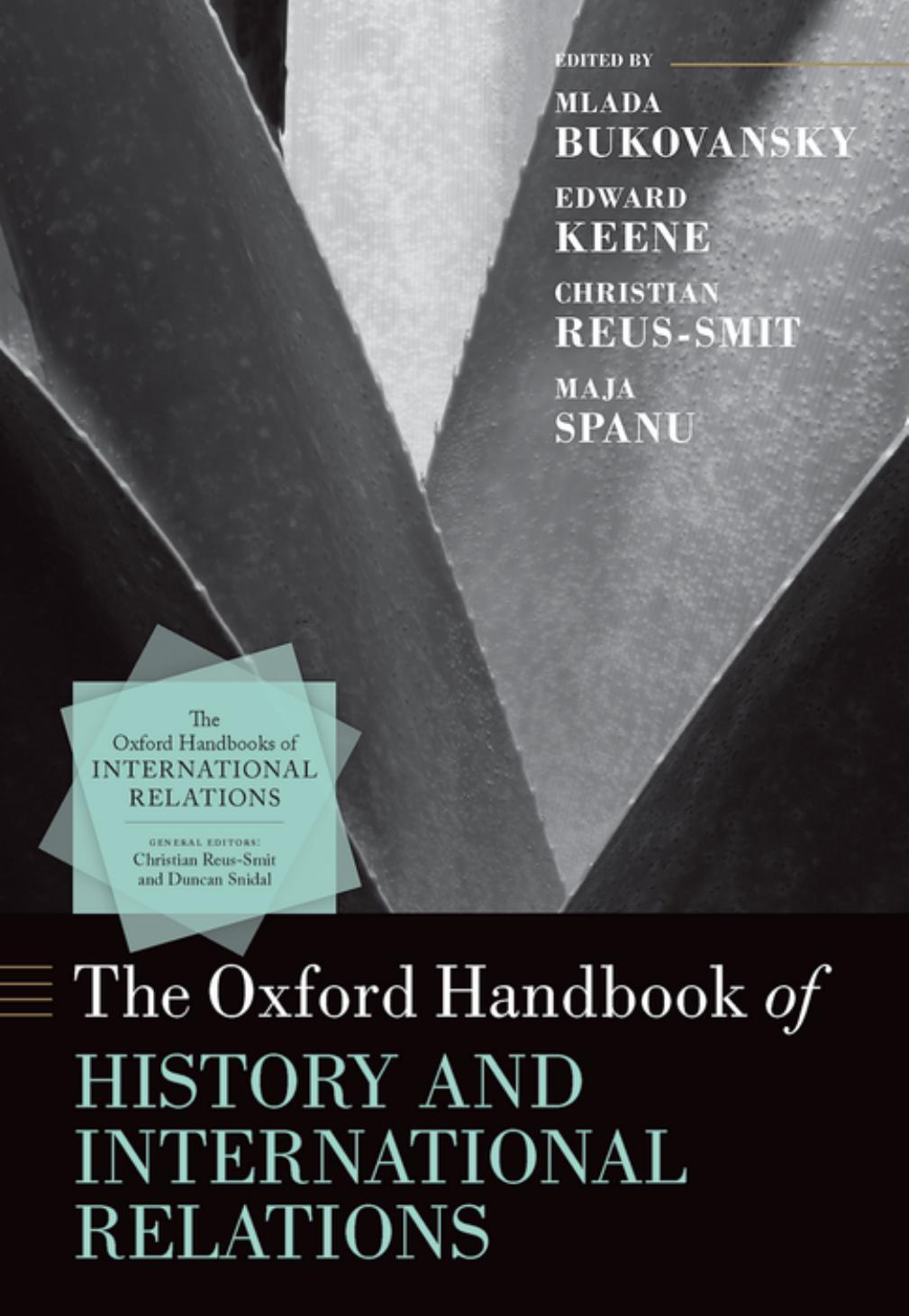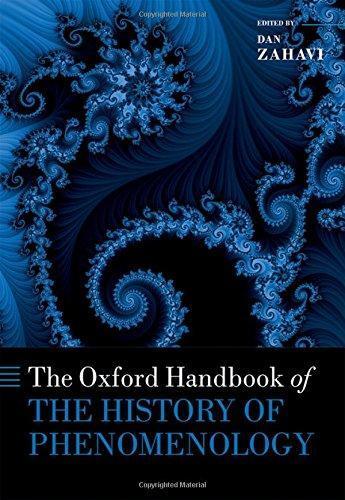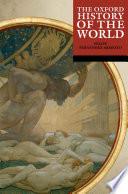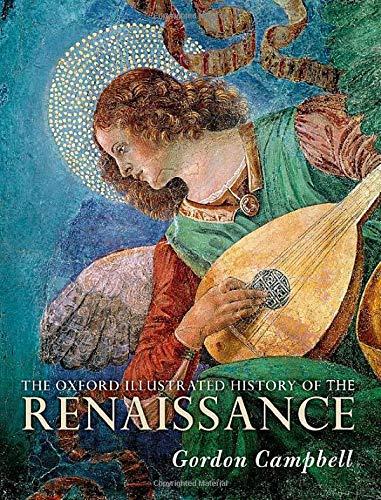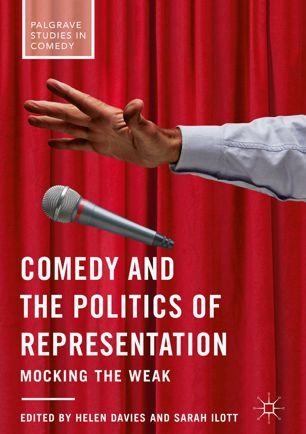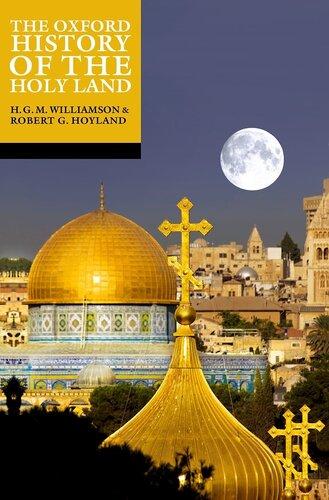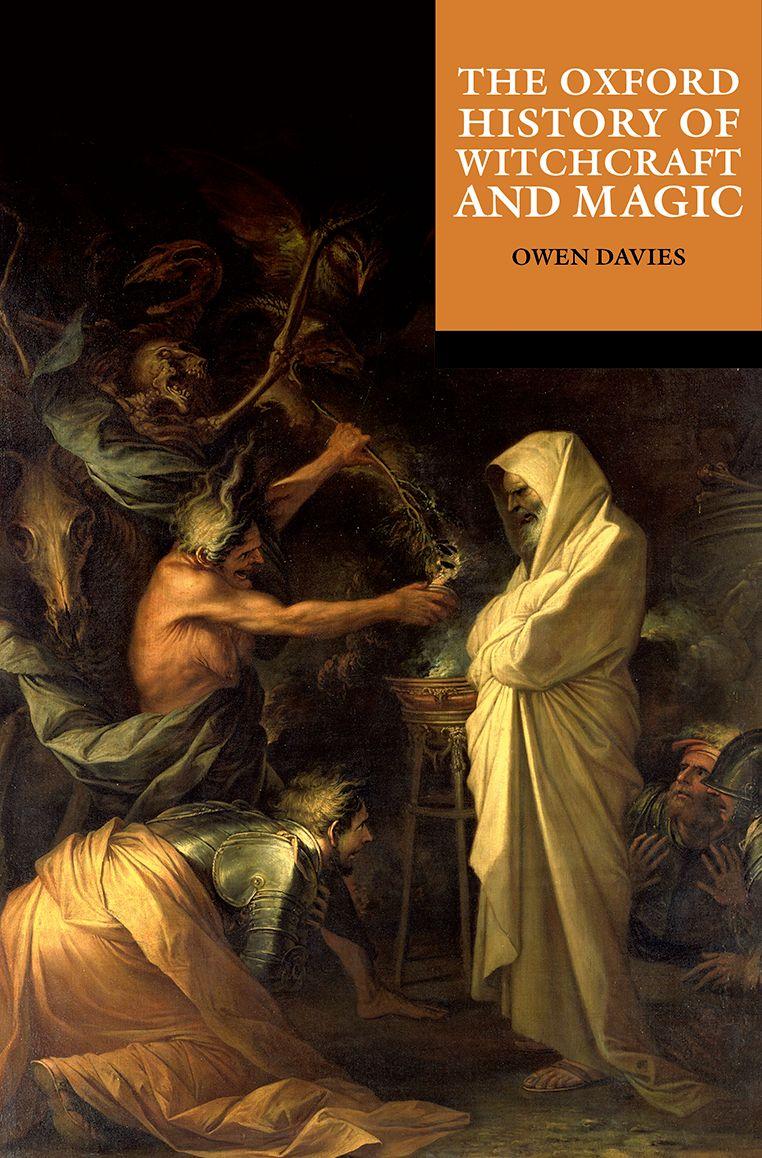TheOxfordHistoryof WitchcraftandMagic
Editedby OWENDAVIES
GreatClarendonStreet,Oxford,OX26DP, UnitedKingdom
OxfordUniversityPressisadepartmentoftheUniversityofOxford. ItfurtherstheUniversity’sobjectiveofexcellenceinresearch,scholarship, andeducationbypublishingworldwide.Oxfordisaregisteredtrademarkof OxfordUniversityPressintheUKandincertainothercountries
©OxfordUniversityPress2023
Thetextofthiseditionwas firstpublishedin
TheOxfordIllustratedHistoryofWitchcraftandMagicin2017
Themoralrightsoftheauthorhavebeenasserted Firstpublished2017
Firstpublishedinpaperback2021
Impression:1
Allrightsreserved.Nopartofthispublicationmaybereproduced,storedin aretrievalsystem,ortransmitted,inanyformorbyanymeans,withoutthe priorpermissioninwritingofOxfordUniversityPress,orasexpresslypermitted bylaw,bylicenceorundertermsagreedwiththeappropriatereprographics rightsorganization.Enquiriesconcerningreproductionoutsidethescopeofthe aboveshouldbesenttotheRightsDepartment,OxfordUniversityPress,atthe addressabove
Youmustnotcirculatethisworkinanyotherform andyoumustimposethissameconditiononanyacquirer
PublishedintheUnitedStatesofAmericabyOxfordUniversityPress 198MadisonAvenue,NewYork,NY10016,UnitedStatesofAmerica
BritishLibraryCataloguinginPublicationData Dataavailable
LibraryofCongressControlNumber:2022946834
ISBN978–0–19–288405–3
DOI:10.1093/oso/9780192884053.001.0001
PrintedandboundintheUKby ClaysLtd,ElcografS.p.A.
LinkstothirdpartywebsitesareprovidedbyOxfordingoodfaithand forinformationonly.Oxforddisclaimsanyresponsibilityforthematerials containedinanythirdpartywebsitereferencedinthiswork.
Editor
’sForeword
Manypeoplearevaguelyfamiliarwiththehistoryofwitchcraftand magic.Thetopicattractsregularmediainterest.Yetitisalsoasubject aroundwhichswirlsmuchmisunderstanding,misinformedopinion, anddubiousfacts.Onesuchperennialnotionisthatwitcheswere burnedinEngland,andlikewisetheerroneousbeliefthatmillionsof peoplewereexecutedduringtheeraofthewitchtrials.Overthelast twocenturiesthisnotoriousepisodeinEuropeanhistoryhasrepeatedlybeenportrayedasastainonthemedievalage.Yetthevast majorityoftheprosecutionsandexecutionstookplacenotinthe MiddleAgesatall,butinwhathistoriansrefertoastheearlymodern period,anerawhichrunsroughlyfromthemid-fifteenthcenturyto themid-eighteenthcentury.Wordslike ‘hysteria’ and ‘ craze ’ litterthe olderliteratureonthesubject,andcontinuetobewidelyusedto describethetrials.YetasJamesSharpeandRitaVoltmershowin theirchapters,thecausesandpatternoftheEuropeanwitchtrials werenottheresultofmassdelusionorcredulity.Thegreatestminds oftheerabelievedintherealityofwitchcraftandmagic.Thiswasa timeinEuropewhentheReformationtransformedreligionand politics,legalsystemswerebecomingmoresophisticated,andscience madegreatstridesinunderstandingthenaturalworld.Thebeliefin witchcraftandmagicwasnotsomeevolutionarystagethatsociety passedthroughonthewaytogeneralenlightenmentandscientific progress.
Theintenseacademicandpublicfocusontheearlymodernwitch trialscan,itself,beseenasproblematic.Doestheexecutionoftensof thousandsofpeople,forexample,makeitmoreimportantandof morehistoricvaluetoresearchandunderstandwitchcraftandmagic inthiseraratherthanbeforeorafter?Oneoftheaimsofthis Oxford History istodescribehowwitchcraftandmagichaveahistorythat stretchesbacktothebeginningofwriting5,000yearsago,andremain withustodayasrelevantculturalphenomenathatcontinuetoreflect fundamentalaspectsofcontemporarysocietiesandindividual
psychologies.Thelastthreechapters(bymyself,RobertWallis,and WillemdeBlécourt)showthatwecontinuetoliveinaworldfascinatedbythepromiseofmagic.
Theoriginsofmagicwerealreadybeingdebatedinantiquity,and historiesofthewitchtrialswereappearinginEuropebeforethelastof thetrialsandexecutionshadended.Thetopichasexcitedtheminds ofartists,playwrights,novelists,andscreenwritersoverthecenturies. Forsomeitisthedetailsofmagicalpracticesinpursuitofwisdom, health,wealth,desire,andharmthatareofmostinterest,orthe fabulousstoriesoftheseeminglyimpossible,suchas flying,shapechanging,andconjuringdemonsandangels.Forothersitisthe gruesomestoriesoftorture,persecution,andexecutionthatintrigue, provokingreflectiononhowotherwisereasonablehumanbeings couldallowandperformsuchtasks.Thehistoryofwitchcraftand magicprovidesrareglimpsesintothehumanpsycheandthecomplexitiesofhumanrelationshipsinthepastintermsofgender,age, ethnicity,andsocialstatus.
Lessexcitingtosome,perhaps,butequallyfascinatingiswhatthe historyofwitchcraftandmagiccantellusabouthowsocietiesformed, developed,andchangedoverthecenturies.Itenablesustoseethe profoundifoftensubtleinteractionsbetweendifferentculturesthat areobscuredbystudyingthe ‘biggerpicture’ ofwar,conquest,andthe politicalgamesbetweenkings,queens,andemperors.PeterMaxwellStuart’schapterprovidesuswithanoverviewofhowmagicalknowledgeandpracticesrevealtheculturalandreligious flowsbetween successiveempiresandreligionsintheancientworld.Magicunitesas wellasdividesideologiesandreligions.SophiePage’schapteron medievalmagicexaminestheextraordinarybutbrief floweringof knowledgeexchangebetweenChristians,Muslims,andJewsinSpain. Thegeographyofwitchcraftandmagicisanotherimportanttheme runningthroughthisbook.AsRitaVoltmerobserveswithregardto thewitchtrials,thinkingintermsofmodernstateboundariescan hinderourunderstandingofwhyandhowthingshappenedinthe past.Thesameissueappliestotheancientandmedievalworldsas well.Maxwell-Stuartnotestheproblemoftalkingabout ‘Greece’ as anentity,forexample.AbasicunderstandingoftheHolyRoman Empireishugelyimportantformakingsenseofthepatternand natureofthewitchtrials.DuringtheearlymodernperiodtheHoly
RomanEmpirehadinfluenceoverabigswatheofcentralandwestern Europe,andyetthislong-livedEuropeandynasticstateislittleknown tothegeneralpublictoday.GermanyandItalydidnotexistas countriesuntilthemid-nineteenthcentury,andyetweunderstandablytalkaboutGermanywhendiscussingtheheartlandofthetrials. Aswellasbeingawareofthepoliticalgeographiesofdifferenteras, Ihighlightinmychapteronpopularmagicthatwealsoneedtobe sensitivetolocalandregionalbeliefs,andtraditionsthatwerenot definedbynational,religious,oradministrativeboundaries.
This OxfordHistory followsafamiliarpathinconcentratingprimarilyontellingthestoryofhowwitchcraftandmagicwereviewed, practised,andsuppressedintheMediterraneanandEuropean world.But,ofcourse,witchcraftandmagicareglobalconcepts. Encapsulatingthediversityandcomplexcontextsofmagicalbeliefs andpracticesacrosssevencontinentsisbeyondthescopeofavolume suchasthis.YettheEuropeanexperiencewasnotisolatedfromglobal influences.Throughcolonialconquestandexpansionfromthesixteenthcenturyonwards,Christianconceptionsofwitchcraftand magicdeterminedhowindigenousreligionsandbeliefsoverseas wereconceptualizedanddealtwithbyEuropeans.Indigenous magicalpractices filteredsubtlyintoEuropeantraditions.Fromthe latenineteenthcenturyonwards,westernspiritualistsandritualmagiciansdrewinspirationfromthemysticaltraditionsandreligionsof IndiaandtheEast.Meanwhiletheearlyanthropologistsbusiedthemselvesgatheringdataformagicalpracticesfromacrosstheglobe, searchingforoverarchingtheoriesofhumandevelopment.Andin the finalchapteronscreenrepresentationsofwitchesandwizardswe seehow,today,cinemapresentscertainstereotypestoaglobal audience.
Weshouldnotseedifferentpartsoftheworldasbeingindifferent stagesofhumandevelopmentbecausetheybelievedinwitchesor reliedonmagicintheirdailylives.Thechaptersinthisbookreveal remarkablecontinuitiesinwhat,why,andhowpeopleperformed magicindifferentculturesoverthemillennia.Thereaderwill find, forinstance,thepracticeofstickingpinsinto figurinesinthechapter ontheancientworldandintheoneconcernedwithEuropeanfolk magic.Thebooksconsultedandcopiedbythemedievalmagicians discussedbySophiePagehavebeen ‘rediscovered’ overthecenturies
x Editor’sForeword
andarenowfoundontheinternetandusedbymodernmagicians. Whilesomeofthekeyconceptsthatunderpinmagicarethousandsof yearsold,wemustalsobecarefulnottoportraythemyriadbeliefsand practicesencompassedbytheterm ‘magic’ assomehowagelessor unchanging,eithergloballyorwithindifferentcultures.Magicboth reflectsandisshapedbychangesinenvironment,religion,science, andsocialrelationsovertime.
ThewritingsofthedemonologistsexploredbyJamesSharpeprovideuswithadirectlineintothemind-setofinfluentialindividuals andwhatinformedtheirideasandconvictions.Butmostofthe sourcesforthehistoryofwitchcraftandmagicaremuchlessauthorial, muchlesstangible,andconcernamixofemotions,thoughts,dreams, fantasies,insinuations,verbalaccusations,andphysicalactions that,whenrecordedatall,usuallycomedowntousthroughthe distortinglensesofbureaucraticselectionandinterpretation.The writtenarchiveisnotallwehave,though.Inabookthathasthegift ofnumerousillustrationsitwouldhavebeenwastefulnottofocuson thematerialexpressionsofmagicalpracticeandvisualmedia. Whetherwithregardtoantiquity,non-literaryculturesoverseas,or nineteenth-centuryEuropeanfolkmagic,wearefortunatetohave numerousarchaeologicalremainsforthehistoryofmagicalpractices. Insomeinstances,fromallperiodsandplaces,thematerialremains aretheonlyrecordwehaveofwidespreadpopularpracticesand rituals.
Astothepictorialrecordofwitchcraftandmagic,thechaptersby PeterMaxwell-StuartandSophiePageshowhowthediagramsand depictionsonancientvases,tablets,andamulets,andtheilluminated illustrationsinmedievalmanuscripts,areasimportantforourunderstandingofmagicasthewritteninscriptionsandinstructionsrecorded onsuchmaterials.CharlesZika’ssurveyoftheartisticrepresentation ofwitchesfromthesixteenthtotheeighteenthcenturiesexploreshow developmentsintechniqueandrepresentationcreatedanewvisual languagefordepictingwhatwitchesandmagicianswerethoughtto do.Photographyenabledmodernmagicianstoshapeandcontrol theirpublicmagicalpersonae,whilethemovingimage,asdiscussed byWillemdeBlécourt,ledtoafurtherreformulationofhistoric notions,stories,andstereotypesforamassaudience.
Theremitofthe OxfordHistory seriesoffersagreatopportunityto provideadistinctapproachthatwillfocusonhowthearchives, imagery,andmaterialcultureshapeourunderstandingofthehistory ofwitchcraftandmagic,andhowhistoryshapesthesourceswehave. Thecontributorstothisbookhaverisentothischallenge.Letthe magicbegin. Editor’sForeword
ListofTables
1.MagicintheAncientWorld1
PeterMaxwell-Stuart
2.MedievalMagic29
SophiePage
3.TheDemonologists62
JamesSharpe
4.TheWitchTrials93
RitaVoltmer
5.TheWitchandMagicianinEuropeanArt134 CharlesZika
6.TheWorldofPopularMagic165
OwenDavies
7.TheRiseofModernMagic195
OwenDavies
8.WitchcraftandMagicintheAgeofAnthropology227
RobertJ.Wallis
9.WitchesonScreen258
WillemdeBlécourt
MagicintheAncientWorld
PeterMaxwell-Stuart
Asalways,whenwetrytodiscussmagicthereareproblemsof definition.Whatdowemeanby ‘magic’ inanygivencontext,and howdoesitdifferfromreligionontheonehandand ‘science’ onthe other?Tosomeextentthosearenon-questions.Theydependona debatestemminglargelyfromthenineteenthcenturywhichwaseager toseeclearlinesofdemarcationbetweentheseconcepts,andwhich wasparticularlyresponsiblefortryingtodrawoneoranotherofthem intothespecificallywesternEuropeancorralsof ‘rationality’ or ‘irrationality’.Ifwethinkofmagicasapeculiarkindofdiscourseon powerbetweenthemembersofasociety,wecanenvisageitasasetof socialexchanges,thedefinitionofwhichisliabletochangeinaccordancewiththepassageoftimeandshiftingcircumstances,andthe categories ‘religion ’ , ‘magic’ , ‘science’ canbeseenas fluidratherthan distinctandimpenetrable.Thus,forexample,theRomannaturalist andphilosopherPlinytheElder(23–79 AD)recordspracticessuchas eatingasalamanderpreservedinhoneytoawakensexualdesire,and chantingspellsintendedtocurediseaseandotherimpairments,and whiledismissingthemasexamplesofpopularnonsense,hestill regardsthemasmedicalratherthanmagical.Evenso,therestill remaintousdifficultiesattendantuponanydiscussionof ‘magic’ . So,perhaps,theonlypracticalwaytocopewiththeminshort compassistocuttheGordianknotandsaythatforourpurposes here, ‘magic’ referstoaconstellationofwhatareofficiallyregardedas deviantritualisticorritualizedwaysofdealingwithanindividual’ s immediateproblemsbyachievingaccesstosacredpowerwhich demandsorcompelstheassistanceofnon-humanentities.Itshould alsobesaidinthiscontextthatwemustbepreparedtoregardmagic
asentirelyrationalwithinitsframesofreference,andnottobe equatedwith ‘superstition’ or ‘irrationalornon-rationalbehaviour’ .
Mesopotamia
Someoftheearliestexamplesofmagicalperformancearetobefound intherecordsofancientMesopotamia(modernIraq).Theserecords arewrittenincuneiform,ascriptimprintedonsoftclaytabletswith theslantededgeofareed-pen.Theclaywasthenbakedtomakethe recordpermanent.Thousandsofthesetabletssurvive(somesmall, perhapsaninchsquare,otherslarge,overonefootsquare),their contentsembracingmyth,theogonies(genealogiesofthegods),laws, literature,economics,hymns,incantations,proverbs,prayers,omen observations,andmagicaltextsofvarious,butalwayspractical,kinds. Cuneiformwasusedbyanumberofdifferentpeoplesincluding Sumerians,Babylonians,Hittites,andAssyrians,fromaboutthe fourthtothe firstmillennium BC,andmuchofwhatsurvivesoftheir textsisinAkkadian,thelinguafrancaofthewholeregion.Butonceit hadfallenoutofuse,itsrecordsbecameunintelligibleuntilthe eighteenthcenturywhenthousandsoftabletswererediscoveredand broughtbacktoEuropebytravellersandscholarseagerto find confirmatoryproofsoftheplacesandeventscontainedintheOld Testament.Gradually,duringthenineteenthcentury,severalscholars managedtodeciphertheamalgamationofwriting-systemswhichgo tomakeup ‘cuneiform ’ untilbythemid-1850sthetaskwassubstantially,althoughnotcompletely,done.
Thenatureofthesemagicaltextscanbeseeninonefromthe secondmillennium BC whichtellsuswhattodoincaseofdog-bite. ‘Takesomeclayandrubtheoutsideofthewoundwithit.Fashiona dogfromclayandplaceitonthenorthwalldirectlyinthesun.Recite [thefollowing]incantationthreetimesoverituntilthedogsurrenders itsmoistureandtheman’sbitedriesup.’ Ifstungbyasnake, ‘Take snake-stone,crushit,andheapitontheheadofthemanwhohasbeen bitten....Fillayellowbowlwithseawater.Letthebittenmandrinkit. Itsvenomwillcomeout.’ Thesepracticalitiesclearlyinvolvethe conceptof ‘sympathy ’ whichassumesthateverythinginthecosmos islinkedinsomewaytoeverythingelse,andthatifsomeonewants tocauseaparticulareffect,goodorbad,inrelationtoonething,
anobjectbearingsomeresemblancetothatthingcanhaveits resemblanceexploited,magicprovidingthemeansforthatexploitation.Hence,inthecaseofdog-bite,onemakestheclayimageofa dog,linksittothebitebysmearingclayoverthewound,andthen waitsfortheimagetodisintegrateundertheheatofthesun,bywhich timethewoundwillhavehealedbynaturebutbyanaturematerially assistedbysympatheticmagic.Likewise,thepowderusedinacaseof snakebitecomesfrompulverizingastonesuchasanammonite,which resemblesaserpent,andbymakingthepatientdrinkwaterwhichis bitterandmaywellcausehimtovomit.Theyellowcolourofthebowl maybereminiscentofpus.Hencetheconstituentpartsofthepractice combinetoformaconsistentmagicalwhole.
Certainincantationstoquietenacryingbabyareinterestingforthe lighttheyshedonMesopotamianbeliefsabouttheintrusionofevil intoeverydaylife.Oneaddressesthechilddirectly,askingitwhyitis crying. ‘Youhavewokenthegodofthehouse’,itistold,andtherefore theparentshavebeenobligedtoseekthehelpofanexorcist(ašipu) whochantsthisadjurationandendsbywishingthatsleepmayfall uponthebabyasitdoesupon ‘drinkersofwine,thehabituésofabar’ . Disturbingthehouseholdgodisclearlyaseriousmatter,forifhehas goneaway(presumablytogetsomepeaceandquiet),thehousehasno protectionagainstdemonssuchasLamaštu,abird-likecreaturethat inflictstheevileye.Thiswelearnfromanothersimilarincantation whichlistssomeoftheharmsuchademoncando. ‘Shepassedbythe babies’ doorandcausedhavocamongthem.Shepassedbythedoor ofthewomeninchildbedandstrangledtheirbabies.Sheenteredthe storeroomandbroketheseal.’ Thewordfor ‘god’ inthesetextscan alsobeusedforthedeadandsoLamaštuiscausinganumberof catastrophes:thedeathoftheyoungergeneration,thestarvationof theadults,andtheexpulsionofthedeceased,protectingancestor. Awholefamilymaythusbedestroyedbecauseofababy’scrying,and thisiswhysuchasimpleoccurrencerequiresthehelpofaprofessional magiciantodisperseitspotentiallyevileffectsandrestoreharmony notonlytothelivingbutbetweenthelivingandthedead.
Suchinstancesofharm,accidents,confrontationwithfrightening ordeleteriousentities,anddiseaseitself,maywellhavebeencausedby a ‘witch’ (kaššapu,male; kaššaptu,female),thatistosay,someonewitha commandofharmfulmagic. ‘Becausesheperformedevilagainstme’ ,
saysonetext, ‘andhasfabricatedbaselesschargesagainstme,mayshe die,whileIcontinuetolive.’ Examplesoftheharmthese ‘witches’ mightdoarenumerous.Magical figurinescouldbeemployedfor malevolenceaswellashealing,andacomplexritualknownas Maqlû (literally ‘burning ’)wasusedtodestroytheireffect.Inthis, counter-imagesofthe ‘witch’ weremadefromavarietyofmaterials, presentedtothegods,especiallythegodof fire,andthen,aftera catalogueofthewickeddeedsperformedbythewitch,destroyedina kiln,eachstageoftheritualbeingaccompaniedbyappropriate incantations.
Witchcraftwasassumedtobeattherootofagoodmanyillnesses, mentalaswellasphysical.Impotenceandindigestion,strokesand facialpalsy,childhoodconvulsions,fevers,andavarietyofskincomplaintsareamongafflictionsdescribedintermswhichsuggestthe handofademonorgod,ortheutteranceofacurse,orthemalignity ofa ‘witch’ istheprecipitatingcauseoftheproblem. ‘Witches’ frequentlyintroducedtheirevilintoapersonviafoodorwater whichhadbeenbewitched—‘Ifsomeonehaspainsbetweenhisshouldersandhisteetharebleeding,hehasadiseaseofthelungsandhas beengivenanenchanteddrink ’,saysatextfromthe firstmillennium BC andsuchhostilemagicmightwellalsodependonthestarsforits fulleffect.Thenamesofcertainillnessesordisabilitiesreflecttheir astralorigins,suchas ‘spermofJupiter’ and ‘handof Šamaš (thesun)’ . Soitwastothesesamestarsorplanetsthatthehealer-magicianwould turninordertobringaboutacure,hisritualinvolvingpuri ficationof bothhealerandritualspace,libations,andprayerstothestar,sothat ‘thesorceryandmachinations[ofthewitch]willbereleased’.The starsandplanets,indeed, figurelargeinMesopotamianmagic.Their journeysthroughthesky,theirrisingsandconjunctions,theirchangingcolours,andtheirnon-appearanceattheexpectedtimewereall scrutinizedandcarefullynoted.Fortheyweresignsfromthegods, andtheirmovementsweredivinelywrittenmessages,portentsperhapsofharmtoanindividualorcatastrophetoaregion.Theirbaleful influencehadtobecounteredbyapotropaicmagic,aformofmagic whichhadthepowertoavertsuchevilinfluence.Apotropaicmagic wasalsousedinresponsetosuchsimpleeverydayomensasthe abnormalbirthofhumansoranimals,anoutbreakof fire,thesudden appearanceofacertainfungusonthewallsofahouse,oreventhe
squeakingofawater-pot thelatterrequiringofferingsoffreshwater, herbs,andbeadstotheappropriatestar.
Magic,then,alliedtoworshipofthegodsandexorcismofdemons, permeatedMesopotamiansociety,alongwithanacuteawarenessof thespiritsofthedeadasmajorplayers,forgoodorill,inthelivesof theliving,andanequallyardentneedtowatchthestarsandplanets, sincetheirinfluenceswerebothpotentandpotentiallydire.Expelling harmintheformofillness,badluck,witchcraft,oraccidentformeda majorpartoftheexorcist’smagic,althoughprecautionagainstsuch mischiefscouldalsobeessayedbywearingamuletsonone’ sperson,or hangingtabletsinscribedwithincantationsonthewallordoorofthe house.Doesthissuggest,however,thatMesopotamiansocietytended toliveinastateofconstantfearornervousnessinthefaceofacosmos envisagedasessentiallyhostile?At firstitmightseemso.Thegeneral aimofmenandwomentoliveahealthyandprosperouslifewas evidentlyhamperedbythepotentiallyconstanthazardspresentedby ill-intentionedorill-naturedentities,humanandnon-humanalike. Theirharmfulactivitiesformedpartofthewarpandwoofofthe universe,buttheycouldbefacedandtheireffectsovercomebyprayer andmagicwhichoftenworkedtogethertoachievetheirprotective ends.Theskillsofthe ašipu and barû (diviner)counterbalancedthoseof the maš-maš (workerofharmfulmagic),andwhileindividualmenand womencouldcallupontheirservices,magicalaidandprotectionwas readilyavailabletoeveryone.So,farfrombeingneuroticcivilizations, societiesinMesopotamiawereable,intheoryatleast,tolivemoreor lessinastateofequilibriumwithboththeirhumanandnon-human neighbours,relyinguponthatmixtureofreligionandmagicandwhat alateragewouldcall ‘naturalphilosophy’ thatconstitutedtheintellectual,psychological,andemotionalambienceoftheirexistence.
Egypt
TothewestandsouthofMesopotamia,anothercivilization,thatof Egypt,wasdevelopingitsownwriting-systemataboutthesametime. Thissystemconsistedofhieroglyphswhichinlatertimesweremisinterpretedassymbolsforobjectsandallegoricalideas.Butwhileideal forstonemonumentsandhighlyformalizedrecords,hieroglyphsdo notlendthemselvestoquickandeasywritingonpapyrus,andsotwo
simplifiedversionsemergedovertime:hieratic,usedmainlybypriests, anddemotic,usedbyeveryoneelse.Thesurvivingliteratureofall threeformsisvaried,rangingfromhistoricalinscriptionstostories, poems,hymns,letters,decrees,booksofinstruction,andamagical corpusofspellsandincantations;andyetthelasthieroglyphicinscription,datedto394 AD,signalledtheendofpeople’sabilitytoreadand understandthesystem.Thereafterhieroglyphswouldbelargelyneglectedandmisunderstood,andanexplanatoryworkfromaroundthe fifthcentury AD, Hieroglyphica by ‘Horapollo’,displayedbasicincomprehensionofhowthesystemworked: ‘whentheywouldsymbolisea manthatisfondofbuilding,theydelineateaman’shand,forit performsallworks.’ Arabicscholarsoftheninthandtenthcenturies, andtheJesuitAthanasiusKircherintheseventeenth,madesimilar mistakes,anditwasnotuntilthediscoveryoftheRosettaStonein 1799thatanumberofscholarsbegantomakeheadwaywith decipherment,pavingthewayforJean-FranoisChampollion’ spersonalsuccessin1822.ThestonebearsaninscriptionfromMemphis, dated196 BC,andrecordsitinthreeforms:hieroglyphic,demotic, andGreek.TheinclusionofaGreektranslationthusofferedan invaluablekeytointerpretingtheEgyptian,andoncethenatureof hieroglyphicshadbeencorrectlyunderstood,deciphermentofthe writtenlanguagewasabletostriderapidlyahead.
Whatthedeciphermentrevealed,amongmuchelse,wasthewealth ofmagicalprescriptionsintendedtoprotecttheindividualbothduringhisorherlifeandafterdeath.Themostfamousofthelattertype arethe PyramidTexts whichintheirearliestformdatefromthethird millennium BC andcontainspellstoreanimatePharaoh’sbodyand assisthimtoascendintothesky.Afurtherdevelopmentofthesemay befoundinthe CoffinTexts (latethirdmillennium),whichemphasize thejudgementofthesoulbyOsiris,godoftheunderworldand afterlife.A finalversion,orrathersetofversions,ofthisprotective tradition,theso-called BookoftheDead,fromthelatesecondandthen firstmillennium BC,containsspellstoguidethesoulthroughthemany post-mortemtrialsandultimatejudgementthatawaitit.Thesespells weremeanttoberecited,ofcourse,althoughtheirexistenceinwriting wasconsideredtobejustaseffectual.Forherewehaveoneofthe fundamentalconceptsofEgyptianmagic heka.Spell261fromthe CoffinTexts makesclearthat heka wasregardedasthemagicalvitality
whichinfusedthe firstcreativeutteranceofthesolardeityRaatthe birthoftheworldandwhichcontinuestodosoatitsre-creationevery morningwitheachsunrise.Thecommonlyfoundphrases ‘magicof theirmouths’ and ‘spellsoftheirutterances’ showthecloserelationshipbetweenspeakingandmagic,andoneinscriptionalsolinksa femaleaccompanimentofapersonifiedHekawiththespoken and writtenword: ‘possessorofspells,carryingherwritingswhicharein hermouth’.ButHekadoesmore exorcizing,cursing,enchanting, andprotecting,includingprotectionofthepassageofthesunthrough theunderworldeachnight,andHeka’sextensivepowers,wearetold, putfearintothegodsthemselves.Magicthuspermeatedcreation,and itsassociationwiththespokenword,inparticular,meantthatthetwo weretreatedasmoreorlessequivalent: ‘yousayasmagic’,notesthe PapyrusEbers (amedicaltextfromthemid-secondmillennium BC). Individualsaswellasthingsmight,therefore,beimbuedwithmagic andconsequentlypossesstheabilitytouseitsever-presentforce.Thus Pharaohhimselfwassometimesreferredtoas wr-hekaw-pw, ‘ someone greatinmagic’,whilethe CoffinTexts speakofevilmagicpractisedby sorcerersaswellasdemons,andelsewherewearetoldthatRa fled fromtheearthtoavoidmagicians ‘whodoastheywishagainstthe wholeland,usingthemagicthatisintheirbodies’.AsfarasEgyptis concerned,then,itissometimesdifficulttodistinguish(shouldwewish todoso)wherereligionendsandmagicbegins spellsandhymns,for example,frequentlyoverlap althoughitshouldbesaidthatmuchof theevidenceforthiscomesfrommagicaltextsandmaynotbe altogetherimpartialorindifferent.
Soif heka permeatescreation,canitspowerbeharnessedandused byanyoneregardlessofstatus;andifso,couldtherebesuchaperson asa ‘professional’ magicianinancientEgypt,asthereundoubtedly wasinMesopotamia?LiteracyinancientEgyptdoesnotappearto havebeenwidespread,sopresumablyownershipofbooksofmagic wouldhavebeenlimitedtotheclassofpriestsandscribes,althoughas neithergroupwouldhavebeenimmunefromthemagicofpopular culture,adegreeofcommontheology,commonaims,andcommon methodsmustbeassumed.If,therefore,therewasamagicianin ancientEgypt,hewasalmostcertainlyapriest theterm ‘chief lector-priest’ impliessomeoneassociatedwithmagicalpractices,and inlateEgyptianthetitlesimplybecomestheordinarywordfor
‘magician’—andonethinksofthe hartumîm (theHebrewrenderingof theEgyptiantitle)whoengagedinamagicalcontestwithMosesand AaronatPharaoh ’sCourt,asrecordedinExodus6:8–12.
OneofEgypt’smostcommonmanifestationsofmagicalpracticeis tobefoundin figurinesandamuletsmadeofvarioussubstanceswhich havebeenuncoveredbyarchaeology.Thesewerethefocusofspells intendedtotransferhatredorbadluck,ortoprotect,or,inthecaseof statuetteswhichhadbeenbroughttolifebymagic,toservetheir humanowners.Amagician’sboxdatingfromthelatethirdorearly secondmillennium BC,discoveredin1896,containedavarietyof magicalpapyri, figurines,humanhair,amuleticknives,andastaffin theformofasnake.Theseserpent-staffsappearfrequentlyinpaintingsandstatues,andwereclearlyusedaswandsinanumberof magicalactions,suchasthatofdrawingaprotectivecircleonthe groundorintheair.Representationsofboundprisoners,theirrace oftenidentifiablefromtheirmouldedfeatures,arefoundbothas separateartefactsandaspicturesdrawnorpainteduponthesolesof woodensandals.Theactoftreadingthemdownunseenonthesolesof thesandalscombineselementsofpsychologyaswellasmagic,a personaldesirereinforcedbytheuseof heka whichwilltransform hopeintoreality.Execrationtextsarecarvedonmodel figuresor inscribedonpottery,andinaparticularriteintendedtoinflictterror onone ’senemies,redpotswereinscribedandthenbroken,redbeing associatedwithdemonsandthehostilegodSeth.Other figurineswere piercedwithnailsorshownboundhandandfootormadeheadlessor blind,theirmutilationordisfigurementintendedtodisabletheir humancounterpartandthusprotecttheonewhomadethemor hadthemmade.
Suchobjectswereoftenburied,andspell37ofthe CoffinTexts tells ustomakeawaximageofourenemy,inscribeitsbreastwitha fishbone,andthenburyitinagraveyard.Now,theknowledgeofhowto inscribemagicalwordsonanobjectmaysuggestthatconsultationof anexpertwouldhavebeennecessarytoachievethedesiredendofthe magicalact,butitisalwayspossiblethataverysimpleformulacould havebeenlearnedbyanyoneandreproducedwithoutliterateunderstanding,justasmanypeopleinthepastcouldpentheirsignature withoutbeingabletowriteanythingelse.Whateverthecase,amulets, whichappeareverywhere,needednosuchexpertise.Thenames,uses,
andrequiredmaterialsfromwhichamuletsshouldbemadeappear inpapyrustextsand,inonenotableinstance,onthewallsofthe PtolemaictempleofDenderaonthewestbankoftheNile.Some consistofpendantsinthelikenessofdeities,orthe wedjeteye (sometimes knownas ‘theeyeofHorus’,althoughitreferssimplytoadivineeyein general,notjustthatofaspecificdeity).Otherslooklikeacylinder(the djed pillar),ortaketheformofpiecesofjewellerysuchasanecklaceor bracelet.Aseriesofobjectsinvolvingknotsalsoconstitutedimportant amulets aknotinagarment,wornoveroneshoulder,theso-called ‘Isisknot’;orseveralknotsinacord,knownas ‘Anubisknots’ ,an exampleofwhichhasbeenfoundinacordbraceletintheworkmen’ s villageatTellel-Amarna,thecapitalcityofPharaohAkhenaten(who reignedfromtheearly1350stothemid-1330s BC).Whiletheseknots maybeinterpretedaswaysofbindingorblockingharmfulpowersor influences,itisalsopossibletoseethemasmeansofanchoringthe powerofspellsrecitedoverthecordwhiletheknotswerebeingtied. Indeed,thewell-knownEgyptianhieroglyphknownasthe ankh may originallyhaverepresentedacircularknotofthiskind.
Mummiesaswellasthelivingwereprotectedbyamuletsofvarious sorts,whichwereslippedbetweenthebandagesduringwrappingof thecorpse,andseveralstatuesaredepictedwithchest-poucheswhich probablycontainedmagicalobjectsofonekindoranother.Indeed, somesuchpouches,weknow,containedaslipofpapyrusonwhich waswrittenaprotectivespell.Thesewerewornbychildren,invery muchthesamewayas bullae and lunulae (amuleticlocketsandmoonshapedornaments)werewornbyRomanchildrencenturieslater, andtheirprincipalpurposecanbeseenfromtheEgyptianwords foramulet: mkt (‘protector’)and wedja (‘thethingwhichkeepssafe’). Perhapsthemostfrequentlyfoundamulets,however,werescarabsin theshapeofadung-beetle,producedandsurvivingbythethousand. Thisbeetlerollsaballofdungwithitshindlegs,andthustypifiesthe journeyofthesunacrossthesky:henceitsassociationwithRa.Many ofthesescarabsarestampedwiththewords ‘goodluck’ andwere oftenusedincomplexmagicalritestoobtainlove.
Butprotection,whileconstitutingalargepartofthemagicalwork donebythesespecialobjectsandtheincantationswhichaccompanied theircreation,wasnottheonlyreasonancientEgyptianshadrecourse toincantationsandritualsbothcomplexandsimple.Healingunder
theguidanceandpatronageofThothwasalmostasimportant.Thoth wasreveredinparticularasthegodofmedicineandwriting again weseetheconnectionbetweenspeech,script,andmagic andindeed theEgyptianwordforremedymaybederivedfromaverbmeaning ‘encircle’,anetymologysuggestiveofmagic,since ‘encircle’ frequently appearsinEgyptiantextswithaclearlymagicalsense.Itisalsoworth notingthatthemagician’sserpent-wandwhichwasusedamongother thingstodrawamagiccircleisshowninawall-paintingatDenduras the was-sceptreofThoth,completewithclimbingsnakeandscorpion, animagestronglyreminiscentofthelaterGreekcaduceus(staff) whichwasadoptedasasymbolofmedicalpracticeandauthority. Onespell,addressedtodisease-demonsandbiddingthemstayaway fromthepatient,givesinstructionsforthepractitionertotakeastick madeof des-woodanddrawaprotectivecirclewithitroundeither thepatient’shouseorthepatienthimself.Papyrisuchasthe London MedicalPapyrus (c.1300–1200 BC)alsocontainspellstoberecitedover theingredientsforuseinmedicine,anddoctorsoftentoldpatientsto recitemagicalformulaewhiletheytooktheirprescribedremedies. Femalemagician-healersarerecordedatDeirel-Medina.Theirparticulartaskmayhavebeentodiagnosespirit-possession,sincemagicomedicalpapyrifrequentlysaythatsomeillnesseswerecausedby ghostsordemons. ‘Retreatenemy,demon,youwhocausethisdistress toonewhoisnotdead’,saysonetext,forexample,whileanother,the PapyrusBrooklyn,tellsusthatfemaleghostsareliabletobeespecially dangeroustotheliving.Butwhetherghostordemonbeblamedfora patient’sillness,thepapyrileaveusinnodoubtthattheultimatecauseof sickness,regardlessofwhetheritsimmediatecauseseemedtobean accidentorstemfromanaturalsourcesuchasascorpion,wasactually theangerorhostilityofadeity.Theghostordemonactedmerelyashis orheragent.Soalineofcauseandeffectmayherebetracedfrom religiontomagictomaterialpracticalities,showinghowintimately connectedwereallthreeintheEgyptianpsychology.
Otherrelatedmagicritualssoughttoinduceloveorprotectfertility inthislifeorthenext spell576ofthe CoffinTexts,forexample, promisesthewearerofaparticularamuletenhancedsexualprowess intheafterlife and figurinesandpaintingsclearlyprotectiveofthe womborthepudendawereplacedintombs.These,however,were notonlyrelevanttothedead,butshowthekindofmagicpractisedto
aidtheliving,andwrittenspellsinformusthatsexandchildbirthwere regularlyattendedbytheirappropriateformsofmagic.Againweare fortunateenoughtopossessabox,datedtothesecondmillennium BC, whichcontainsmagico-medicalpapyrispecificallyrelatingtowomen andchildren,whilenearbywerediscoveredamuletsandother magicalequipmentincludingawandlikethatusedbymagicians. Butifthislifeweretocontinueafterdeath,ithadtobeprotected againstthenumeroushostileforcesrangedagainstit,andsuchpapyri asthe CoffinTexts andthe BookoftheDead providedthespellsnecessary toensurethattheindividualsurvivedthetrialsanddangersattendant uponitsimmediatepassageintothenextworldandavoidedthe annihilationwaitingforanywhofailedthe finaltrialandjudgement. Noticethatthetextswereburiedwiththedeadsothatthedeadcould readthemaloudeachstepoftheway.Againwehavetheintimate connectionbetweenthespokenwordandthemagicalactwhichwere combinedintheconceptof heka. ‘Ihaveenchantedbymeansofyour wordswhichyoucreatedbymeansofthemagicwhichisinyour mouth’,saystheinscriptiononawoodenstatueofHorus.Hence, obliteratingaperson’swrittennamewasadevastatingmagicalact,for ifthenamecouldnotbespoken,the heka wasdrainedfromitandthe personwoulddieasecond,irreversibledeath.
ItmaybeaclichétosaythattheEgyptiansweredeeplyreligious, butitisclearnotonlythattheywere,butthattheywerealso profoundlyinlovewiththeirearthlylivesandthereforesoughtto prolongthemafterdeath.Thegodsmightsometimesbehostile enoughtosenddemonsorghoststoinflictillnessoraccidentupon them,buttheEgyptianshadawealthofaccumulatedknowledge whichtoldthemhowtocureandprotectthemselvesbymeansthat evendivinitieswereunabletoresist.Whilethewrittenmagicaltraditionwaslargelyinthehandsofpriestsandscribes,itsformulae, incantations,andspellswerebynomeansexclusivetothem,but wereknownto,learned,andusedbyeveryone,literateornot.Like theMesopotamians,then,ancientEgyptianslivedinaworldwhich mightappeartobefullofdangersfromnon-humansources,yetwhich didnotmakethemneuroticorconstantlyfearful.Magicalvitality permeatedeverythinganditspowercouldbeharnessed,tapped,used, andexploitedatamoment’snotice.Writing,whichcouldhave createdamoreorlessself-containedclassofmagicalexperts,infact
provednobartotheuseofmagicingeneralandcreatednobarrier betweenliterateandnon-literatemagic.Thisislargelybecausemagic wasso firmlyintegratedwithreligionandEgyptianreligionwas catholicinitsembrace.Nodistincttheology,nolimitedpantheon, declaredthatsuchandsuchwasorthodox,andsuchandsuchwasnot. Inconsequence,literateandnon-literatecouldoperateaccordingto thesameorsimilarbeliefs,ordeviateinaccordancewithlocalpractice astheychosewithoutexcludingthemselvesfromtheefficacyofthe heka whichranthroughallthegods,andwhosepowertheycould bebroughttoacknowledgeandobey.
JewishMagic
OpentoinfluencesfrombothMesopotamiaandEgypt,Israel-JudaeaPalestinepossessedandpractisedawealthofmagicwhichincluded notonlythekindsofoperationwehaveseenalreadyinitsneighbours butalsodivinationandakindofocularinfluenceusuallycalledthe ‘evileye’ whichwerepartoftheotherculturestoo,buthadacertain distinctivenessoftheirowninJewishsociety.OneofthemoretantalizingriddlesoftheOldTestament,forexample,istheexactnature andpurposeoftheUrimandThummim,whichweretwomeans, apparently,ofobtainingoracularresponsestoquestionsputbythe priest,theirofficialguardian.Accordingtotradition,theyhadbeen leftbyMosesasalegacytothepriestlytribeofLeviandseemtohave beenusedincircumstanceswhichrequiredasimpleanswer ‘Yes’ or ‘No’.Thus,Numbers27:21says, ‘He[Joshua]shallstandbefore Eleazarthepriestwhoshallinquireforhimbythedecisionof theUrimbeforetheLord.’ DifferentpassagesintheOldTestament givedifferingviewsonwhattheseobjectswereandwheretheywere keptwhennotinuse.Onesuggestionisthattheywerepreciousstones insertedintotheHighPriest’sceremonialbreast-piece(the ‘ephod’); anotheristhattheyweresmallobjectskeptinapouchattachedtothe ephod;anotheristhattheyweretwosidesofasingleobject.Soifthese suggestionsarerightingeneral,itseemsthatdivinationbycasting lots andbytheselotsentirelypeculiartoJewishpractice was availabletoatleastalimitednumberofpeople,limitedbecausenot everyonewaslikelytohavehadaccesstoaLeviteortheHighPriest himself.Still,wedohaveseveralotherreferencestosortilegeduring
theseancienttimes.GodHimself,indeed,isspokenofmorethanonce ascastinglotstodecidethefateofIsrael(Isaiah34:17);we findthe Israelitessigningacovenantsaying(amongmuchelse), ‘wehavealso castlotsamongthepriests,theLevites,andthepeople’ (Nehemiah10:34); Aaroncastlotstodeterminewhichoftwogoatsbelongedasasacrifice toGodandwhichshouldbeusedasascapegoatandanofferingto thedemonofthedesert(Leviticus16:8–10);andJonahwascast overboardintotheseabecausethesailorshadcastlotsinorderto knowwhichpersononboardhadangeredGodenoughtoprovoke Himtosendastorm(Jonah1:7).Clearly,therefore,itwasapractice commontoallsectionsofJewishsociety.
Beliefintheefficacyoftheevileyewasalsocommonnotonlyin Israel-Judaea-PalestinebutthroughoutthewholeoftheMiddleEast. InMesopotamiaittendedtoworkasanirritantratherthanasa meansofinflictinglethalornear-lethalharm,causingthebreakageof potsorthespoilingoffood,forexample.InJudaismitsassociations weremoresinister: ‘Takeheedlestyoureyebeevilagainstyourneedy brother...Hiseyeshallbeeviltowardshisbrotherandtowardsthe wifeofhisbosom...Hereyeshallbeeviltowardsherhusband...Eat notthebreadofhimthathasanevileye’ (Deuteronomy15:9,28:54, 56;Proverbs23:6).Rabbiniccommentatorsclaimedthatnearlyall deathshappenedasaresultoftheevileyeandthatthiseyecaused sicknessessuchasplagueandleprosy.Protectionagainsttheeyewas thereforecommon.Ablessingfromsomeoneelsewoulddisperseits influence,butthemostprevalentformofprotectionwasprovidedby amulets,someconsistingofobjectsintheshapeofahandgesturing againsttheevileye,othersofsmallreceptaclescontainingstripsof parchmentwiththenameofGodoraversefromtheOldTestament writtenonthem,whilesmallbellsorobjectscolouredbluewerealso consideredprotective.HerewethinkofExodus39:25, ‘Theyalso madebellsofpuregold,andputthebellsbetweenthepomegranates onthelowerhemofthe[HighPriest’s]robeallround,betweenthe pomegranates.’ WemayalsothinkoftheinjunctionofNumbers15: 37–8, ‘TheLordsaidtoMoses,SpeaktotheIsraelitesandtellthemto make[knotted]fringesonthecornersoftheirgarments...andtoputa bluecordonthefringeateachcorner.’
DuringlateantiquityandtheMiddleAges,Jewswerecreditedwith adetailedknowledgeofmagicandthisreputationobviouslydidnot
